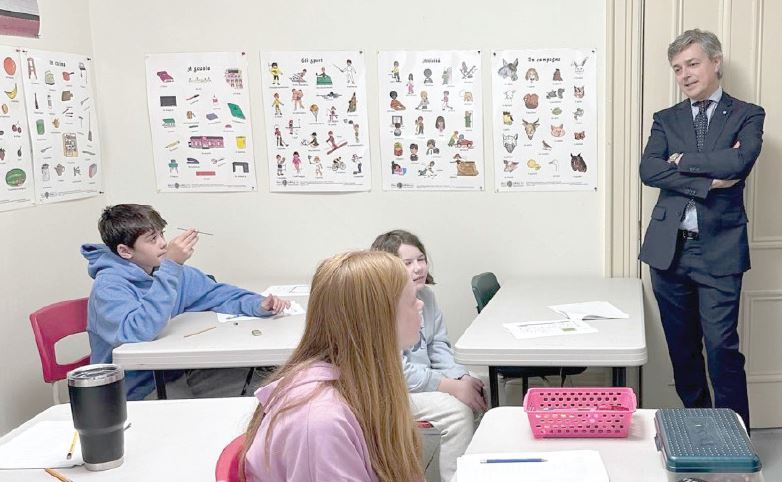Survival and growth with an accent even in isolation
TORONTO – Ambassador Alessandro Cattaneo’s visit to New Brunswick, and, more specifically, his attendance at the 50th anniversary dinner of the Italian Club in Moncton (one of the three main urban centres of the province) brought back a first and most unexpected phone calls, when I was sworn in as Minister. I expected it might have been my mother.
Wrong. The call came from New Brunswick, a sparsely populated province – whose citizens are equivalent in number to those who live in Mississauga, Ontario – but spread over an area the size of Gallia Cisalpina in the Ancient Roman Republic (modern day Piedmont, Lombardy, Veneto, Trentino, Liguria, Friuli). I was an MP from the center of Toronto.
I hope the readers indulge me with this moment of reflection on the “indomitable” character of diaspora Italians, and that the individuals mentioned take no offense at being mentioned as part of the story, as it unfolds.
“Minister, one of your relatives asked if you would be kind enough to call her back”, said my Executive assistant, adding, “a certain Diane Volpe from New Brunswick”. There was no Diane in my family; certainly, none from New Brunswick, I replied, how would a Volpe end up there? Was there a special stop for them on the train from Pier 21, I added, in my most ironic tone.
“Oui, bonjour Monsieur Volpe; Merci, d’avoir me rappleee. I was watching the swearing ceremony and I thought I might call you, a Federal Minister, with a name like mine, who might be able to tell me of my origins, do you mind if I ask you about this?”, she said nervously. Her surname was Volpe’, with an accent ague so that the Francophones would not drop the final e, and the Anglophones would not pronounce it as an ee. “My grandfather apparently was not from the area, and he spoke a different language but forbade anyone from speaking anything but French in the house.”
She continued, “But we knew were different because of what we ate: we were the only ones in town who made and cooked something called spaghetti with tomato sauce, pizzotte et minestra or sometimes pizza and tomatoes. Later we found out these were Italian meals. Are you familiar with them”, she asked.
Typical meals identified with my area of Italy from where there were waves of emigrants prior to and shortly after World War I; lots of them Volpe, did she have any such records, I replied.
She did not know. The local church, where records of births, Baptisms and other religious rites and ceremonies were kept, had burnt down and no reliable documentation existed. Nor could she say with any certainty when her grandparents arrived and what was their port of entry.
I offered that at the turn of the twentieth century many immigrants to Canada found their way from ports of entry at Quebec/Montreal, Boston or New York (Ellis Island). Our conversation took the better part of an hour. Towards the end she said that her brother, a certain Jeannot Volpe’, was a member of the Provincial Legislator and Cabinet Minister in the [Conservative] government of Premier Bernard Lord.
Two decades have elapsed. I have not reconnected with the Volpe’. My loss; I will correct this, thanks to Ambassador Cattaneo who went looking for Italians who have survived in a foreign, distant land and have never forgotten who they were/are and may now be in a position to have that heritage bear fruit to this adopted land.
Here above is the Italian Ambassador Alessandro Cattaneo in New Brunswick, in a classroom of Italian Language (photo: Italian Embassy in Canada)
More Articles by the Same Author:
- Sopravvivenza e crescita anche in isolamento
- Culture and Entrepreneurialism: the Italian Diaspora as a modern Homeric Odyssey
- Cultura e imprenditorialità: la diaspora italiana è come una moderna Odissea omerica
- Community Builders Tribute and Humber River Hospital: Generosity and Foresight
- Community Builders Tribute e Humber River Hospital: generosità e lungimiranza




